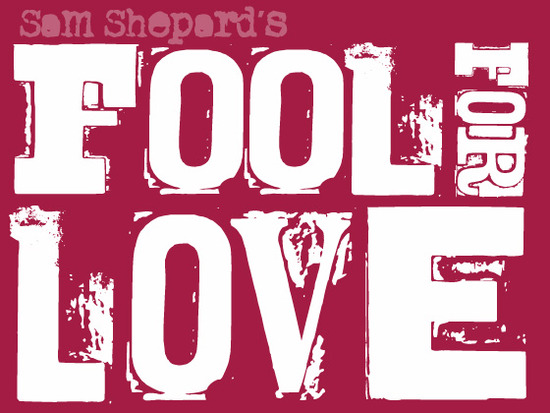Sam Shepard’s “Fool for Love” is arguably one of Shepard’s most famous plays, joining such classics as “True West”, “Curse of the Starving Class” and his Pulitzer Prize winning masterpiece, “Buried Child”. The play highlights and examines two main themes: the intricacies of the human subconscious, as it relates to one’s reality and the impact of various points of view on a single memory from a family’s past. This production will strive to highlight both of these main ideas through the vehicles of theatre and through concentrated and in depth character analysis.
Illusion vs. Reality: The blurred line between illusion and reality is a theme Shepard is extremely fond of investigating. From the beginning, he has an interest in studying what happens to individuals within their own state of mind and how that affects their relationship with others. Most of his plays deal specifically with family, mirroring aspects of his own childhood through the classic struggle of father vs. son. Through the medium of theatre, we have unlimited access to various ways of blurring the line between illusion and reality, the past and the present and can portray it’s effect on the human condition.
Memory: Shepard also portrays the complications that come with memories and how one single moment from the past can have various mutations based on each person’s point of view. We experience this very strongly in Fool for Love with the character of The Old Man. He is constantly trying to “set the record straight” about what happened during May and Eddie’s childhood and desperately clings to the idea that, through it all, he was a good father. Because he only exists in the mind of Eddie and May, we could argue that this self-denying Old Man is only what May and Eddie remember of their father, and could actually have no resemblance to how their father really was. Eddie is also an examination of distorted memory. He frantically attaches himself and his aspirations in the romance of the Old American West and the grandeur that lies in being the quintessential American Cowboy. He fools himself into believing that his relationship with May was never as tumultuous as she claims and fights tooth and nail throughout the play to prove that his convictions and beliefs, which are built solely on how he remembers his past, are correct.
His characters, like the ones we meet in Fool for Love, have no real grasp on things such as time or identity; their pasts are constantly coming back into their present to prevent their futures and there is no sense of any kind of traditional character or story arc. However throughout their struggles, we find ourselves easily relating to and sympathizing with them at every turn. Fool for Love resembles the surreal and often absurd and contradictory realm of the human psyche and it is a subject we will attempt to highlight in our production, for we believe that theatre is the perfect apparatus to interpret and expose the exhilarating conflict between reality and illusion.
The “fools” in the play are our two lovers, Eddie and May. As the lights come up, we find them in a run down Mojave Desert motel, where May is hiding out. Eddie, a childhood friend and former flame, barges in and is trying to convince May to come back to him so that they may start the life they had always dreamed about. May refuses because she has started a new life and knows that if she goes back to Eddie their relationship will repeat the same destructive cycle it has before. Throughout the play the character of the Old Man — the father of both lovers — is present and talks to each of the other two characters. It is revealed that the Old Man had led a double life, abandoning each family for different parts of each child’s life. The two became lovers in their high school years and when their parents finally figured out what had occurred, Eddie’s mother shot herself. May is afraid that Eddie has begun to emulate his father; taking to drinking and secretly seeing a woman May refers to as, “The Countess.” The play centers on the drama of the action rather than a plot with a rising and falling action. In the end, the two lovers have not reconciled, the Old Man begins to lose himself to his own delusions, and a stranger is left on stage to observe it all.
Production Team








